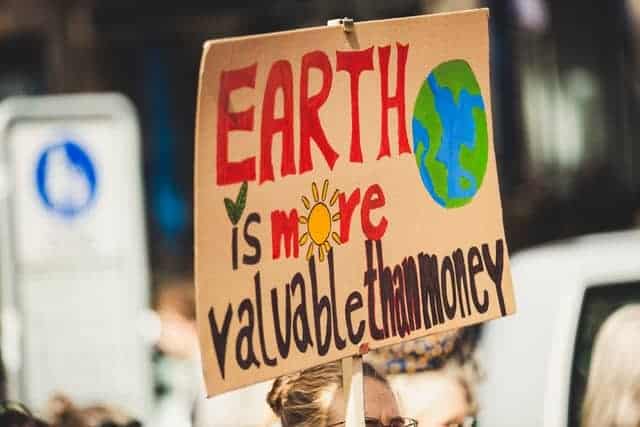The Environmental Impact of Vegetarian Vs. Meat-Based Diets
With the threat of Global Warming, plastic floating in our oceans, and an increased pressure to reduce one’s own carbon footprint, it’s no wonder that many people are looking to lessen their impact on the environment.

More and more people are looking to their kitchen cupboards for a solution. Foods with a higher carbon footprint, such as prepacked foods, are being swapped in favour of locally produced ingredients. But what is the environmental impact of eating a plant-based diet? Is it truly more eco-friendly than eating meat?
Which Diet is Best for the Earth?
Meat-Based
A meat-based or omnivorous diet is one in which both animal products and plant products are eaten. This diet has no restrictions; if it’s edible, it’s up for grabs.
However, it has been proven that this diet is under fire for its high rate of pollution. Beef production alone has a global average of about 36 kilograms of CO2 per kilogram of beef, ten times higher than most plant-based foods (Our World in Data, 2020).
The eco-conscious carnivore can still make choices with their food purchases to do their part in saving the planet. Opting for cruelty-free, cell cultured meat could be considered.
For instance, the main contributor to meat’s (or any food’s) carbon footprint is transportation. This is why people who purchase locally-sourced beef can boast half the carbon transmissions per kilogram when compared to the global average (NFU, 2020). So, whether going out to eat or cooking at home, make sure you know where your meat is coming from!
Plant-Based
If beef is responsible for ten times more carbon emissions than vegetarian options, then eliminating some animal products must be the more environmentally friendly choice, right? That’s the reasoning behind 8% of the world population who have made the switch to a vegan or vegetarian diet.
However, just because you’ve taken meat off the menu doesn’t mean you don’t have to carefully review your food choices. Packaging and transportation can increase the carbon footprint of vegetarian foods. So, even when opting for a plant-based diet, it’s important to know the environmental impact of the food provider, not just the food itself.
Which Diet is Best for You?
When you look at the endless sea of health and fitness blogs online, you’ll be reeling at all the different opinions on nutrition. One might claim that a vegan or vegetarian diet can fight cancer, keep you healthy, and thrive well past 90, while another might say that without meat, you’ll be wasting away within a year. Dealing with diet talk is never easy.
So, which is it? Is going vegetarian healthier than eating meat? And, what about protein?
The truth is, a meat-based or omnivorous diet was the only way to get every vitamin and mineral essential to proper nutrition… a few hundred years ago. Now, with plenty of supplements and vegan proteins on the market, perfect health is possible with either diet.
Some Eco-Conscious Suggestions
Diet for a Hot Planet: The Climate Crisis at the End of Your Fork and What You Can Do About It
- This book by Anna Lappé provides a seven-step roadmap for eating for the environment.
Soil Not Oil: Environmental Justice in an Age of Climate Crisis
- In this book, Vandana Shiva highlights the dangers of industrial agriculture, and champions the small, local farm as the hope for our planet.
- Chef Massimo Bottura takes a holistic look at the subject of food waste and shows readers how to reduce food waste with helpful recipes and tips.
The Bottom Line
If you’re looking for which diet is best for the environment, you’ll find that there is more than one way to keep an eco-friendly kitchen. With a little research into your food providers, a focus on local meat and produce, and avoiding fast food and chain restaurants, both vegetarians and meat-lovers alike can do their part for a cleaner planet.
